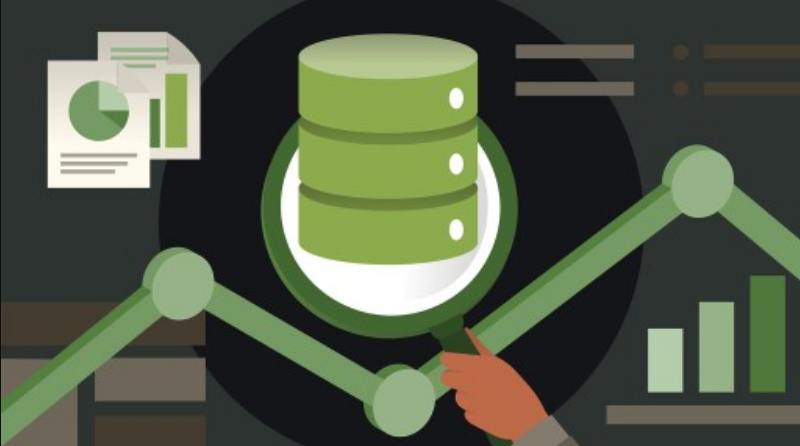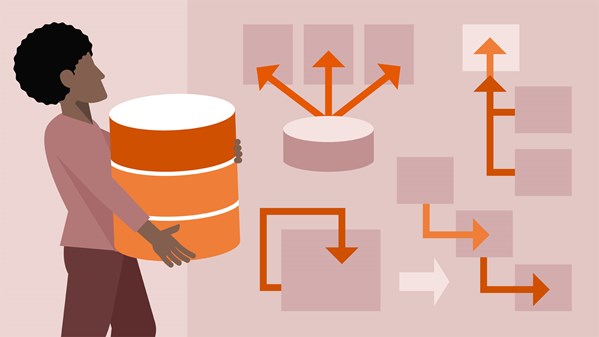
Many organizations are turning to NoSQL databases to store large volumes of complex data, sparking an increased need for data scientists and analysts to understand non-relational data stores. If you're a data scientist or business analyst who needs to work with NoSQL, then this course is for you. Learn about the differences between relational and NoSQL databases, review types of NoSQL databases, and see how to perform common data science tasks, including data preparation, exploration, and building and applying models. The course begins with an introduction to NoSQL, and then delves into the specifics of document, wide-column, and graph databases. Learn key details for performing data preparation, exploration, and extraction for each type of NoSQL database. Review case studies that show how to use various NoSQL databases with popular data science tools, including the document database MongoDB, the wide-column database Cassandra, and the graph database Neo4j.
Topics include:
- NoSQL compared to traditional relational databases
- Performing common data science tasks
- Preparing data with document databases
- Manipulating data in NoSQL
- Preparing, exploring, extracting, and model building
- Working with document, wide-column, and graph databases
- Reviewing case studies using MongoDB, Cassandra, and Neo4j
Deze cursus is enkel beschikbaar in het Engels. Als dit voor u geen probleem vormt, dien dan gerust uw aanvraag in.
This course is in French only. If this is not a problem for you, by all means go ahead and apply.

NoSQL technologies have left even experienced data modelers scratching their heads, wondering how their valuable skills can transfer to future development activities. In this course, learn how to leverage your understanding of traditional data modeling to translate a conceptual data model into a NoSQL design. Instructor Robert Van Cleave discusses notation alternatives, access patterns, and the overall purpose of data modeling. He also covers several common design patterns, explaining how you can use each one. Learn about tree aggregation, anti-patterns, query-driven patterns, and more.
Topics include:
- Purpose of the data model
- Notation alternatives
- Determining access patterns
- Transforming the conceptual model
- Document style patterns
- Columnar style patterns
- Query-driven patterns
Deze cursus is enkel beschikbaar in het Engels. Als dit voor u geen probleem vormt, dien dan gerust uw aanvraag in.
This course is in French only. If this is not a problem for you, by all means go ahead and apply.

NoSQL databases can store nonrelational data on a super large scale and solve problems regular databases can't handle: indexing the entire internet, predicting subscriber behavior, or targeting ads on a platform as large as Facebook. But with over 150 NoSQL database types, it can be hard for a SQL professional to know where to start. In this course, Lynn Langit breaks down these types into a few main categories and shows how to get your own NoSQL database up and running with easy-to-configure cloud solutions. Learn how to add and query data, apply the CAP theorem with NoSQL, and leverage key NoSQL trends such as multifunctionality and data lake NoSQL alternatives. Plus, explore AWS and GCP NoSQL database services such as DynamoDB, ElastiCache, and Bigtable.
Topics include:
Deze cursus is enkel beschikbaar in het Engels. Als dit voor u geen probleem vormt, dien dan gerust uw aanvraag in.
This course is in French only. If this is not a problem for you, by all means go ahead and apply.

As the shiny new object in the data world, you might have heard a lot of people talk excitedly about NoSQL and all the things it can do. It’s great in terms of flexibility, speed, and is easy to work with. It’s super scalable, so it can accommodate increased numbers of users as websites and applications grow. But will it replace SQL? Will it make relational databases obsolete? In this course, Mel McGee explains just exactly what NoSQL is, the pros and cons, and tradeoffs you’ll make when using NoSQL. Mel takes a high-level approach without delving into the details of any one NoSQL query language or solution, so if you’re a developer looking for a bigger picture of NoSQL, or an entrepreneur wanting to explore options for your product, or just plain curious about non-relational databases, this course is for you.
Deze cursus is enkel beschikbaar in het Engels. Als dit voor u geen probleem vormt, dien dan gerust uw aanvraag in.
This course is in English.
